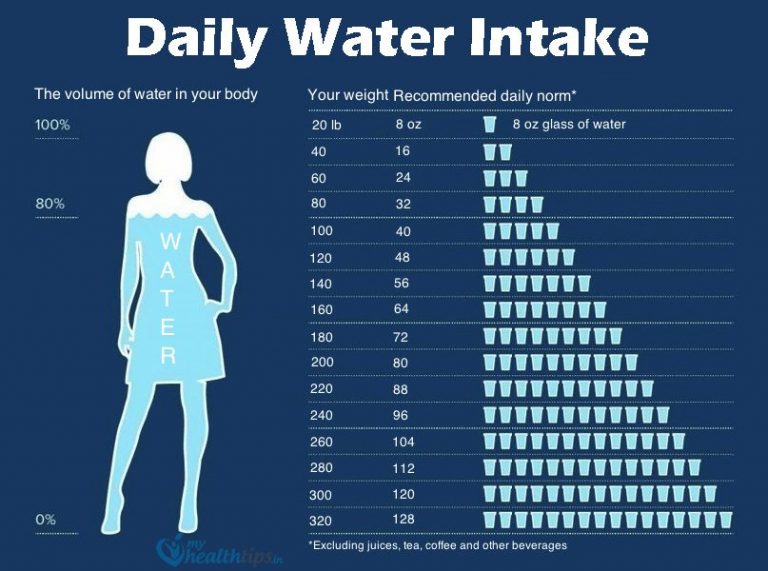The primary goals of behavioral strategies for weight control are to increase physical activity and to reduce caloric intake by altering eating habits (Brownell and Kramer, 1994; Wilson, 1995). A subcategory of behavior modification, environmental management, is discussed in the next section. Behavioral treatment, which was introduced in the 1960s, may be provided to a single individual or to groups of clients.
Typically, individuals participate in 12 to 20 weekly sessions that last from 1 to 2 hours each , with a goal of weight loss in the range of 1 to 2 lb/wk . In the past, behavioral approaches were applied as stand-alone treatments to simply modify eating habits and reduce caloric intake. However, the long-term effectiveness of these diets is somewhat limited. Approximately 40 to 50 percent of patients drop out of the program before achieving their weight-loss goals.
In addition, relatively few people who lose large amounts of weight using VLCDs are able to sustain the weight loss when they resume normal eating. In two studies, only 30 percent of patients who reached their goal were able to maintain their weight loss for at least 18 months. Within 1 year, the majority of patients regained approximately two-thirds of the lost weight (Apfelbaum et al., 1987; Kanders and Blackburn, 1994). In a more recent study with longer followup, the average regain over the first 3 years of follow-up was 73 percent. However, weight tended to stabilize over the fourth year.
At 5 years, the dieters had maintained an average of 23 percent of their initial weight loss. At 7 years, 25 percent of the dieters were maintaining a weight loss of 10 percent of their initial body weight (Anderson et al., 1999, 2001). The largest amount of weight loss occurred early in the studies (Ditschuneit et al., 1999; Heber et al., 1994). One study found that women lost more weight between the third and sixth months of the plan, but men lost most of their weight by the third month (Heber et al., 1994). All of the studies resulted in maintenance of significant weight loss after 2 to 5 years of follow-up.
Hill's review of Rothacker pointed out that the group receiving meal replacements maintained a small, yet significant, weight loss over the 5-year program, whereas the control group gained a significant amount of weight. Active intervention, which included dietary counseling and behavior modification, was more effective in weight maintenance when meal replacements were part of the diet (Ashley et al., 2001). Meal replacements were also found to improve food patterns, including nutrient distribution, intake of micronutrients, and maintenance of fruit and vegetable intake. Increased physical activity is an essential component of a comprehensive weight-reduction strategy for overweight adults who are otherwise healthy. The availability of exercise facilities at military bases can reinforce exercise and fitness programs that are necessary to meet the services' physical readiness needs generally, and for weight management specifically.
For a given individual, the intensity, duration, frequency, and type of physical activity will depend on existing medical conditions, degree of previous activity, physical limitations, and individual preferences. Referral for additional professional evaluation may be appropriate, especially for individuals with more than one of the above extenuating factors. The benefits of physical activity (see Table 4-1) are significant and occur even in the absence of weight loss (Blair, 1993; Kesaniemi et al., 2001). It has been shown that one of the benefits, an increase in high-density lipoproteins, can be achieved with a threshold level of aerobic exercise of 10 to 11 hours per month.
For previously sedentary individuals, a slow progression in physical activity has been recommended so that 30 minutes of exercise daily is achieved after several weeks of gradual build-up. This may also apply to some military personnel, especially new recruits or reservists recalled to active duty who may be entering service from previously very sedentary lifestyles. The activity goal has been expressed as an increase in energy expenditure of 1,000 kcal/wk (Jakicic et al., 1999; Pate et al., 1995), although this quantity may be insufficient to prevent weight regain. For that purpose, a weekly goal of 2,000 to 3,000 kcal of added activity may be necessary (Klem et al., 1997; Schoeller et al., 1997). Thus, mental preparation for the amount of activity necessary to maintain weight loss must begin while losing weight . The most important component of an effective weight-management program must be the prevention of unwanted weight gain from excess body fat.
The military is in a unique position to address prevention from the first day of an individual's military career. There is significant evidence that losing excess body fat is difficult for most individuals and the risk of regaining lost weight is high. From the first day of initial entry training, an understanding of the fundamental causes of excess weight gain must be communicated to each individual, along with a strategy for maintaining a healthy body weight as a way of life.
How many calories you burn depends on the frequency, duration and intensity of your activities. One of the best ways to lose body fat is through steady aerobic exercise — such as brisk walking — for at least 30 minutes most days of the week. Some people may require more physical activity than this to lose weight and maintain that weight loss.
As an alternative to eating a reduced-calorie diet every day, some people try to do "intermittent fasting." This means they significantly cut their calories on a few days per week and eat normally the other days. This diet is generally not recommended, but early research suggests that some people may find it easier to follow this diet than a traditional one, Tallmadge said. A review study published in April 2015 found that people on intermittent-fasting diets lost about 9 percent of their body weight over six months, and about 80 percent of the participants were able to stick with the diet. Success in the promotion of weight loss can sometimes be achieved with the use of drugs. Almost all prescription drugs in current use cause weight loss by suppressing appetite or enhancing satiety.
One drug, however, promotes weight loss by inhibiting fat digestion. To sustain weight loss, these drugs must be taken on a continuing basis; when their use is discontinued, some or all of the lost weight is typically regained. Therefore, when drugs are effective, it is expected that their use will continue indefinitely. For maximum benefit and safety, the use of weight-loss drugs should occur only in the context of a comprehensive weight-loss program. In general, these drugs can induce a 5- to 10-percent mean drop in body weight within 6 months of treatment initiation, but the effect can be larger or smaller depending on the individual.
As with any drug, the occurrence of side effects may exclude their use in certain occupational contexts. Very-low-calorie diets were used extensively for weight loss in the 1970s and 1980s, but have fallen into disfavor in recent years (Atkinson, 1989; Bray, 1992a; Fisler and Drenick, 1987). FDA and the National Institutes of Health define a VLCD as a diet that provides 800 kcal/day or less. Since this does not take into account body size, a more scientific definition is a diet that provides 10 to 12 kcal/kg of "desirable" body weight/day . The primary goal of VLCDs is to produce relatively rapid weight loss without substantial loss in lean body mass.
To achieve this goal, VLCDs usually provide 1.2 to 1.5 g of protein/kg of desirable body weight in the formula or as fish, lean meat, or fowl. Fisler and Drenick reviewed the literature and concluded that about 70 g/day of protein is needed to ensure that nitrogen balance is achieved within a short period of time on a VLCD. A balanced diet together with regular daily exercise will enable to make lifestyle changes and attain this goal. Examples of menus on my website will help you with meal planning.
You have to watch your portion sizes and ensure you sit down and eat regular meals instead of snacking and picking. Nutrition needs vary according to individual metabolic rates and other factors such as activity levels and health status. I suggest you consult a dietitian to personalise a balanced eating pattern for your individual needs. Typically at such a consultation, the dietitian will weigh you, and ask about your medical history, eating and exercise habits, lifestyle patterns and history of weight.
They will then devise an individual eating plan and organise future consultations to track your progress and make adaptations to your present meal plan when necessary. Recent studies of individuals who have achieved success at long-term weight loss may offer other insights into ways to improve behavioral treatment strategies. However, this population was self-selected so it does not represent the experience of the average person in a civilian population.
Because they have achieved and maintained a significant amount of weight loss , there is reason to believe that the population enrolled in the Registry may be especially disciplined. As such, the experience of people in the Registry may provide insight into the military population, although evidence to assert this with authority is lacking. Here, fitness professionals share their best tips on how to drop weight in two weeks. The key to successfully losing weight is remembering that slow and steady weight loss is better for your body than a drastic change.
If you're following healthy weight loss habits, you should minimize your water weight loss while maximizing your fat weight loss, even as early as in the first week. Remember to keep your focus on establishing a healthier lifestyle, not just changing your weight. Dr Neha says, A high protein, moderate carbohydrate and low fat diet is the most effective diet plan to lose weight in 15 days.
It is important to maintain a correct balance between proteins, carbohydrates and fats to lose weight in a healthy manner. With a high protein diet, maximum weight loss in the short period of 15 days is ensured and moderate carbohydrates are essential for fuelling the brain and muscles. The low fat diet fulfils the body s requirement of fatty acids for various metabolic processes. Do you want to lose weight in 15 days but wondering about the effectiveness of the weight loss plan? Well, our expert Dr Neha Sanwalka, nutritionist and dietician, explains that a person can lose around 2-3 kg of weight in a healthy way in 15 days.
Additionally, it doesn t involve strenuous exercises or fasting nor do you feel exhausted at the end of the day. All you need to do is eat healthy and exercise regularly to lose weight in the stipulated time. Here s a quick-guide to help you out in shedding to extra kilos within 15 days. The efficacy of individual interventions is poor, and evidence regarding the efficacy of combinations of strategies is sparse, with results varying from one study to another and with the individual. Recent studies that have focused on identifying and studying individuals who have been successful at weight management have identified some common techniques. These include self-monitoring, contact with and support from others, regular physical activity, development of problem-solving skills , and relapse-prevention/limitation skills.
Body weight, body fat, energy metabolism, and fat oxidation are regulated by numerous hormones, peptides, neurotransmitters, and other substances in the body. Drug companies are devoting a large amount of resources to find new agents to treat obesity. Neuropeptide Y and galanin are central nervous system neurotransmitters that stimulate food intake (Bray, 1998; Leibowitz, 1995), so antagonists to these substances might be expected to reduce food intake.
Beta-3 adrenergic receptor agonists reduce body fat and increase lean body mass in animals (Stock, 1996; Yen, 1995), but human analogs have not been identified that are effective and safe in humans. A significant part of weight loss and management may involve restructuring the environment that promotes overeating and underactivity. The environment includes the home, the workplace, and the community (e.g., places of worship, eating places, stores, movie theaters). Environmental factors include the availability of foods such as fruits, vegetables, nonfat dairy products, and other foods of low energy density and high nutritional value. Busy lifestyles and hectic work schedules create eating habits that may contribute to a less than desirable eating environment, but simple changes can help to counter-act these habits. Next is your diet, a healthy ballanced diet is not a weight loss diet.
It becomes a weight loss diet when you also reduced the calorie intake of that diet to less then what you burn inorder to lose wight every day constantly over a 7 day period. Firstly, I would recommend you speak to your GP; there are some conditions such as Thyroid disorders that can make it very difficult to shed the kilos, even when we are exercising and eating well. Secondly, I would start a diet diary, recording everything you eat for a week and the time of your meals. When analyzing a diet diary we look at what foods you are eating at different times of the day, the volume of food consumed and importantly the amount of meals you are consuming in a given day. The best meal plan for weightloss involves a diet of 6 small meals a day, spaced out in two hour increments. There is plenty of information regarding what foods you should eat and those to be avoided but ensure that you are consuming enough fresh fruit and vegetables to fulfil daily requirements or you will begin to feel fatigued.
Try looking up the "raw food pyramid" as it is a good indication of the food you should eat. Include proteins at every meal, but only a serve that is smaller than your palm. Regular weighing and recording of daily food intake and physical activity for the first month or two of the maintenance period and during periods of increased exposure to food (e.g., during the holidays). If weight gain occurs, reinstitution of this practice may help bring weight back into control.
Frequent follow-up contact with counselors is also crucial (Perri et al., 1993). Effective follow-up consists of a schedule of regular weekly to monthly contacts by mail, phone, or in person. Support groups may substitute for some of this follow-up with a health care provider, but should not replace it.
Many individuals and companies promote the use of dietary fiber supplements for weight loss and reductions in cardiovascular and cancer risks. Numerous studies, usually short-term and using purified or partially purified dietary fiber, have shown reductions in serum lipids, glucose, or insulin (Jenkins et al., 2000). Long-term studies have usually not confirmed these findings (LSRO, 1987; Pasman et al., 1997b). Current recommendations suggest that instead of eating dietary fiber supplements, a diet of foods high in whole fruits and vegetables may have favorable effects on cardiovascular and cancer risk factors (Bruce et al., 2000). Although these diets are prescribed to be eaten ad libitum, total daily energy intake tends to be reduced as a result of the monotony of the food choices, other prescripts of the diet, and an increased satiety effect of protein. In addition, the restriction of CHO intake leads to the loss of glycogen and marked diuresis (Coulston and Rock, 1994; Miller and Lindeman, 1997; Pi-Sunyer, 1988).
Thus, the relatively rapid initial weight loss that occurs on these diets predominantly reflects the loss of body water rather than stored fat. This can be a significant concern for military personnel, where even mild dehydration can have detrimental effects on physical and cognitive performance. For example, small changes in hydration status can affect a military pilot's ability to sense changes in equilibrium. Hundreds of fad diets, weight-loss programs and outright scams promise quick and easy weight loss. However, the foundation of successful weight loss remains a healthy, calorie-controlled diet combined with increased physical activity.
For successful, long-term weight loss, you must make permanent changes in your lifestyle and health habits. Whether you have a special occasion coming up or you just want to feel healthier, sometimes you might want to lose weight fast. Losing 5 kilograms in one week is a difficult goal to reach, but you may be able to do it with the right diet and exercise strategies. However, losing weight slowly will make it easier to maintain your weight loss.
Support is also required for military personnel who need to enhance their levels of physical fitness and physical activity. Low-fat diets have been one of the most commonly used treatments for obesity for many years (Astrup, 1999; Astrup et al., 1997; Blundell, 2000; Castellanos and Rolls, 1997; Flatt, 1997; Kendall et al., 1991; Pritikin, 1982). The most extreme forms of these diets, such as those proposed by Ornish and Pritikin , recommend fat intakes of no more than 10 percent of total caloric intake. Although these stringent diets can lead to weight loss, the limited array of food choices make them difficult to maintain for extended periods of time by individuals who wish to follow a normal lifestyle. A nutritionally balanced, hypocaloric diet has been the recommendation of most dietitians who are counseling patients who wish to lose weight.
This type of diet is composed of the types of foods a patient usually eats, but in lower quantities. There are a number of reasons such diets are appealing, but the main reason is that the recommendation is simple—individuals need only to follow the U.S. In using the Pyramid, however, it is important to emphasize the portion sizes used to establish the recommended number of servings. For example, a majority of consumers do not realize that a portion of bread is a single slice or that a portion of meat is only 3 oz.
You see, every time you perform an exercise, you burn calories. And once you continue exercising, you maintain a regular calorie burn and you burn fat and lose weight in the process! So the secret is in living a healthy lifestyle–daily workout, healthy diet, and staying active. I usually don't recommend calorie counting, as it can be counterproductive to maintaining a healthy, balanced approach to eating. This is one of the reasons why my online weight loss program has been specially designed so you don't have to think about calories.

























No comments:
Post a Comment
Note: Only a member of this blog may post a comment.